Top-Rated Debt Collection Agency in Iowa
Swift and Trustworthy Debt Collection in Iowa - Zero upfront fees, pay only for successful collections. Avail of your FREE Consultation or submit your claim today.

Unlock Superior Debt Recovery in Iowa with Debitura's Unrivalled Collection Services
Unlock Superior Debt Recovery in Iowa with Debitura's Unrivalled Collection Services. As the leading Debt Collection Agency in Iowa, Debitura offers tailored strategies for businesses craving results in account receivables management, debt collection notices, and court enforcement proceedings. Our expert team, well-versed in Iowa's debt collection laws, promises efficient solutions to outstanding debts. Choose Debitura, choose remarkable results.

Comprehensive debt recovery solutions in Iowa from start to finish.

Data-driven, personalized debt recovery in Iowa

Collaborating with 500+ experts for seamless international debt collection.

Mastering 87% debt recovery rate in Iowa with efficiency.
Key facts
- Debt Collection Laws: Iowa's debt collection is regulated by both federal and state laws, including Iowa Code Chapter 614.
- Statute of Limitations: For unwritten contracts, the limit is five years, and for written contracts, it's ten years.
- Wage Garnishments: Iowa follows the federal Consumer Credit Protection Act, limiting garnishments to 25% of the debtor’s weekly disposable earnings.
- Creditor and Collector Licensing: Governed by Iowa Code Chapter 537, Article 6, requiring notification filing with the Attorney General.
- Debt Collection of Commercial Accounts: Governed by Article 2 of the Uniform Commercial Code, found in Iowa Code Chapter 554.
- Enforcement of Security Interest: After default, the secured party may take possession of the equipment or make it unusable.
- Court Filing Fees: The filing fee in Iowa District Court for a civil action with the amount in controversy $5,000.00 or over is $185.00.
- Service of Process Fees: Sheriff’s fees for service of process vary depending on mileage, typically between $25 and $100.
- Interest Rates: Iowa law permits a maximum interest rate of 5%, unless another rate is agreed upon in writing.
- Small Claims Limit: The small claims limit in Iowa is $6,500, handled by the District Court, Small Claims Docket.
This guide is not legal advice and laws/rules may change; consult a qualified professional for personalized assistance. Use at your own risk.
Introduction to Debt Collection In Iowa
Debt collection is a process aimed at pursuing payments of debts owed by individuals or businesses. This pivotal financial procedure often involves a debtor, a creditor, and a collection agency. These parties hold distinct roles and responsibilities in the debt collection process. It is important to understand these roles and the key stages involved to better navigate the debt collection process in Iowa.
A debtor is an individual or a company that owes money, often because of a borrowed loan or supplied goods and services. In contrast, the creditor is the business entity or organisation to whom money is owed. Often, when the debtor is unable to repay the debt within a particular timeframe, the creditor may employ the services of a third entity, a collection agency, to retrieve the owed finances. This collection agency operates by chasing overdue payments on behalf of the creditor.
Key Stages in Debt Collection
The debt collection process in Iowa, like many other states, generally follows three distinct stages: pre-legal, legal, and debt enforcement.
The pre-legal stage is the initial phase where the debtor receives a default notice about their unpaid debt – often with a grace period to pay back the debt before taking further action. This stage usually includes reminders, letters, phone calls, and negotiations for payment arrangements.
If the debt remains unpaid after the pre-legal stage, the process enters the legal stage. The creditor may take the matter to the courts in an attempt to legally retrieve the owed money. Here, the litigation process begins and, if the court rules in favor of the creditor, a judgement against the debtor is procured. This judgement gives the creditor formal permission from the court to recover their debt.
The final stage of the debt collection process is debt enforcement. In this phase, the debtor is legally obliged to pay off the outstanding debt. If a debtor cannot or does not comply, enforcing measures such as wage garnishment or property lien can be used under the ruling of the court to recover the outstanding debt.
Understanding these essential players and stages in the debt collection process shapes informed decisions and actions when navigating debt collection in Iowa. This knowledge equips business professionals with foundational insights to avoid common pitfalls surrounding debt recovery.
Debt Collection Laws In Iowa
Iowa regulates debt collection through a combination of both federal and state laws. By understanding these laws, both creditors and debtors can protect their rights and execute their responsibilities within the due process.Federal Collection Laws
The Fair Debt Collection Practices Act (FDCPA), the Fair Credit Reporting Act (FCRA), and the Telephone Consumer Protection Act are just a few of the comprehensive federal laws that offer protection to consumers against predatory debt collection practices. These laws provide a framework limiting how and when a third-party collection agency can contact a debtor, and dictate the overall conduct of debt collectors.
At the core of the FDCPA is the provision that collection agencies are prohibited from using abusive, unfair, or deceptive practices when collecting a debt. It also restricts the times and means through which they can contact debtors. Violation of these rules can result in substantial penalties for the collectors.
In addition to these federal laws, the Consumer Financial Protection Bureau (CFPB) and the Federal Trade Commission (FTC) play a significant role in overseeing and enforcing debt collection laws and regulations across the nation.
State Collection Laws in Iowa
While federal laws provide a broad framework of protections for consumers nationwide, individual states often enact additional laws to enhance consumer protection within their own jurisdiction. In Iowa, debt collection is governed under state law by the Iowa Code Chapter 537, Article 6 and Chapter 554, Article Three to name a few.
The statute of limitations for collecting diverse types of debts in Iowa differs. For unwritten contracts, the statute of limitations is five years, whereas for written contracts the time limit stretches up to ten years. Once a judgment has been made, it can be enforceable for up to twenty years - significantly longer than many other states.
Iowa also has specific statutes regarding the enforcement of unpaid or 'bad' checks. This law, found in the Iowa Uniform Commercial Code Chapter 554, allows the plaintiff to recover total damages equal to three times the face value of the dishonored check up to a maximum of $500, plus the check's value. To claim these damages, the plaintiff has to make a written demand to the defendant for the check amount at least thirty days prior to commencing the action.
Iowa's Provisions on Wage Garnishments and Exemptions
When it comes to wage garnishments, Iowa follows the federal Consumer Credit Protection Act and supplements it with its own state-specific laws. Iowa law allows for garnishments of up to 25% of the debtor's weekly disposable earnings or the amount by which the earnings exceed 30 times the federal minimum hourly wage - whichever is less. Beyond this, the state also restricts the total garnishment amount based on expected income levels as articulated in Iowa Code section 642.21.
Iowa also offers a variety of exemptions to protect a portion of the debtor’s income and property from being seized in a judgment. These exemptions span from social security benefits to retirement plans to motor vehicles, offering important protections for everyday residents.
On the other side of the equation, all creditors and collectors doing business in Iowa must also comply with certain licensing specifications. For commercial creditors and those collecting over $25,000, this includes notifying the state's Attorney General with comprehensive business information and paying an annual fee to help maintain consumer protections.
By adhering to these diverse federal and state regulations, Iowa aims to strike a balance between the rights and responsibilities of creditors and debtors alike in maintaining healthy economic activity. Understanding these laws is crucial to protecting your rights, whether you are a consumer with outstanding debt or a creditor seeking repayment.Risk Free Debt Collection
Upload your claim and get started with our 100% no-cure-no-pay collection solution.
The Debt Collection Process In Iowa
The debt collection process in Iowa is governed by both federal and state laws, ensuring that creditors are protected without violating the rights of debtors. This meticulous procedure ensures that all involved parties are treated equitably and any outstanding debt is recovered effectively. Let's take an in-depth look at these steps.
Evaluating the Case
The debt collection process begins with case evaluation. This entails a thorough assessment of the case to ascertain its validity under Iowa’s law, specifically Iowa Code Chapter 614. The nature of the contract determines the statute of limitations, which is five years for unwritten contracts and ten for written. If the debt falls within these periods, the case can proceed; otherwise, it becomes obsolete, and the debtor is no longer legally obligated to repay.
At this stage, the total amount of the debt in consideration is also evaluated. For example, if the debt is below $6,500, it falls under small claims, according to the District Court's Small Claims Docket.
Determining the interest rate is an additional critical aspect of case evaluation. Under Iowa law, the permissible maximum interest rate is 5%, unless a different rate has been mutually agreed upon in writing. This evaluation stage sets the stage for the subsequent debt collection steps.
Pre-Legal/Aamicable Phase
The pre-legal stage involves direct communication with the debtor to negotiate repayment. During this phase, the debt collector attempts to reach an amicable resolution before involving the legal system. This consists of sending letters, making phone calls, or even employing in-person meetings, all conducted within the boundaries of the fair debt collection laws.
If the debtor is cooperative, a mutually agreed-upon repayment plan is set up, taking into consideration the debtor's financial situation. Repayment plans may include full or partial payment, installments, or debt consolidation. However, if the debtor is uncooperative or unreachable, the case is escalated to the next phase – legal action.
Evaluation for Legal Action and Small Claims
Should the amicable phase fail, debt collectors evaluate the case for possible legal action. Two key factors considered here are the total amount of debt and the type of debt. For instance, if the debt falls below $6,500 and is deemed appropriate, the claim would be filed in small claims court. This court is designed to resolve minor disputes quickly and without the need for a lawyer.
If the case doesn’t qualify for small claims court, it may require a lawyer's services. In cases where the loan has been secured, the lender can take possession of the collateral as per the enforcement of the security interest under the Iowa Code.
Legal Debt Collection Actions and Enforcement
If a judgment is delivered in favor of the creditor, the debt collection process enters the enforcement phase. The court may issue an order permitting the creditor to enact a wage garnishment. Here, according to the Consumer Credit Protection Act, the garnishment is limited to 25% of the debtor’s weekly disposable earnings, ensuring that the debtor has enough money to maintain a basic standard of living.
If the debtor has failed to comply with the judgment, the court may enforce other actions. These could include bank account garnishment, property liens, or even ordering a sheriff's sale of the debtor's personal property. It is important to note that these actions are subject to legal scrutiny and must not infrate the debtor's rights.
Understanding the debt-collection process in Iowa is central to effectively managing and recovering debts. Navigating this process can be daunting, but by understanding the laws that govern it and the stages involved, creditors can confidently take action knowing that their claims are legitimate and protected. Conversely, debtors can rest assured that their rights are protected and that there are fair procedures for resolving their debts.
Statute of Limitations in Iowa
The term 'statute of limitations' refers to a set of regulations that prescribes the maximum time after an event occurs, such as incurring a debt, within which legal actions can be initiated. Simply put, it provides a deadline for lenders to file a lawsuit for debt collection. If a debt collector comes knocking at your door for debts that have passed this deadline, you are legally protected from having to repay. Thus, understanding the nuances of the statute of limitations is crucial for both creditors and debtors in the realm of debt collection.
However, it is important to clarify that the expiration of a statute of limitations does not necessarily erase the debt from your record. The debt can still exist and may affect your credit score, although a debt collector would have fewer legal methods to enforce repayments.
The statue of limitations varies from state to state, and even from debt to debt. In Iowa, the definitions and periods for the statute of limitations can be found in Iowa Code Ann. § 614.1 et seq.
Statute of Limitations for Different Types of Debts in Iowa
In the context of Iowa debt collection laws, different types of debts have different statutes of limitations. Each is governed by the nature of the agreement made between the debtor and the creditor.
For written contracts, such as personal loans or credit card agreements, the statute of limitations is 10 years. This is quite substantial when compared to other states, granting creditors a decade-long window after the last payment was made or the debt was acknowledged to legally collect the debt.
Oral contracts, where an agreement was made verbally instead of in writing, have a statute of limitations of 5 years in Iowa. One might think that without a written contract, collecting on these debts would be difficult, but if a creditor can provide convincing evidence of such verbal agreements and the debtor's acknowledgment of the debt, legal action can be initiated.
Statute of Limitations in Injury and Property Damage Cases in Iowa
Iowa's statute of limitations also extends to injury and property damage cases. In situations where an injury has been inflicted, the victim has 2 years to file a lawsuit. Beyond this period, the claim might get dismissed based on the expiration of the statute of limitations, irrespective of the merits of the case.
For property damage, the period is extended to 5 years. This applies to any claims for damages inflicted on one's property, whether through negligence or deliberate actions of another party.
Understanding the intricacies of these limitation periods can be instrumental when dealing with debt collection in Iowa. Knowledge of these laws gives both debtors and creditors a fair understanding of their legal boundaries and the timelines within which they must act.
Interest Rates on Late Payments in Iowa
Understanding the interest rates on late payments is crucial in the realm of debt collection. It's the additional charge applied to an overdue sum of money, escalating the amount of debt owed over time if not paid promptly. This added cost, if not managed smartly, can become an overwhelming financial burden, further complicating an already stressful situation. Each state disciplines this aspect differently, and Iowa is no exception with its specific set of rules and laws.
Whether the loan is to buy a house, settle other household expenses, or perhaps to cover the costs of running a business, as credit consumers, our awareness of our rights and obligations is vital. In the state of Iowa, there is a legal maximum interest rate on all loans, including those that are overdue. However, certain exceptions can influence these rates. For instance, if another rate is agreed in writing, the interest may exceed the default 5%. This is under the condition that it doesn't surpass the official usury rate set by the Iowa Superintendent of Banking.
Further Details on Interest Rates in Iowa
Firstly, let’s have a look at how the interest rates have fluctuated over time. In January 2015, the maximum usury rate was recorded at 4.25%. In contrast, in 1978, when this system was first implemented, the rate was as high as 10%. As clearly demonstrated, the interest rates noticeably vary over time.
Next, let’s shift our focus to unlawful interest rates - a term often referred to as usury. Charging a higher rate of interest than the permitted law comes with serious consequences. There are some legal protections against usury in Iowa that can provide relief to those burdened by unscrupulous lenders. If found guilty of usury, the perpetrator must forfeit 8% of the unpaid principal at the time of judgment. Moreover, the plaintiff is only required to pay back the principal debt without any interest or additional costs.
Another important aspect to discuss is the notable exceptions to usury laws. The maximum interest rate rule does not apply to loans for real property, business, agricultural loans, or loans exceeding $25,000. Should you ever find yourself in a position where you've been charged an illegal interest rate, consulting an experienced consumer protection attorney in Iowa would be a wise move.
To conclude, having a comprehensive understanding of the rules regarding late payment interest rates helps you navigate the risks and responsibilities within debt collection. It also incentivizes you to prioritize timely payment of your debts and to plan your finances with more diligence.
Late Payment Fees in Iowa
Understandably, all businesses require timely payments for the goods or services they have delivered. However, there might be situations where the consumer can't or doesn't make the payment on time. To discourage such behavior and encourage timely payments, businesses often attach late payment fees to overdue invoices. In the context of debt collection, these late payment fees matter significantly. They can be a deterrent for late payments and, if not managed properly, can lead to an accumulation of debt over time.
However, these fees aren't unlimited or unregulated. Most jurisdictions have provisions in place to prevent exploitation through exorbitant late payment fees. In Iowa, debt collection rules dictate the structure of these fees. The maximum late payment fees that a business can levy in Iowa vary based on the balance owed. For balances less than $700, the maximum monthly late fee is $60. For balances over $700, however, the maximum monthly late fee is $100.
No Grace Period
In many jurisdictions, a grace period is provided before late payment fees are applied to an overdue account. This is essentially an additional timeframe during which the consumer can make the required payment without any extra charges. However, in Iowa, this isn't a requirement. Businesses are not obligated to offer a grace period for overdue payments. Nonetheless, in practice, many businesses choose to offer a grace period, typically of about seven days, before applying the late payment charges. This option is given as a way of good customer service or to maintain payment relationships.
It is critical to understand that these late payment fees are not an automatic right of businesses. Debtors cannot be charged any fees that weren't explicitly included in their original contract or agreement. Also, these charges cannot be arbitrary or discriminatory. If a debtor feels that they are being unjustly penalized, they have the right to challenge the fees.
In conclusion, late payment fees in Iowa act as a discouragement against late payments and provide a small revenue stream for businesses. However, businesses must be wary of over-reliance on such fees, as high late payment charges could potentially drive away customers. The key is striking a balance between encouraging prompt payments and maintaining good customer relationships.
Small Claims Procedures in Iowa
In the state of Iowa, small claims procedures are established as an accessible, expedited form of court proceeding. These procedures are designed to handle disputes concerning debts and other financial matters, without the need for a prolonged trial or expensive attorney fees.
According to Iowa statutes, specifically Iowa Code §§ 631.1 to 631.17, cases that fall under small claims responsibility include issues where the amount disputed does not exceed $6,500. The aim of creating such a financial ceiling is to provide an affordable legal avenue for those seeking to settle relatively minor disputes or to recover debts. Additional information about these procedures can be found on Iowa’s official court website.
One essential characteristic of small claims procedures in Iowa is the jurisdiction. The Iowa law states that any case must be brought to the court in the county where the defendant resides, the place where the transaction or injury occurred, or where the obligation was supposed to be performed. However, when the defendant is out of state, the case can be filed where the defendant can be found.
The Necessity of a Lawyer & Rules of Service
In Iowa, hiring a lawyer to represent you in small claims court is not mandatory. You can represent yourself, which could potentially save on legal fees. However, the decision of whether to hire an attorney should be based on the complexity of the case and your comfort level with self-representation.
Service of process, or delivery of notice, is another critical aspect of small claims procedures. This service could be undertaken by a peace officer, a disinterested adult, or via certified mail. In eviction cases, however, notice must be served personally.
The defendant in a small claims case must appear within 20 days after service is made to avoid being held in default. In cases where nonresidents are involved, the individual has 60 days to appear.
Transfer, Appeals and Other Aspects
During small claims proceedings in Iowa, a judge may decide to transfer the case if the defendant makes a counterclaim exceeding the small claims limit. These cases then proceed as regular civil lawsuits in the district court.
Both parties involved in a small claims case have the right to appeal, according to Iowa law. Whether orally at the end of the hearing or written within 20 days of the judgment being rendered, an appeal can be lodged. It's worth noting, however, that no new evidence can be presented during an appeal.
Small claims procedures in Iowa also cover eviction cases. However, jury trials are not permitted. This restriction underlines the simplifying intention of the small claims process - to deliver fast and affordable justice without complex courtroom procedures.
Wage Garnishment in Iowa
Wage garnishment is a legal tool that creditors use to collect owed debts. If a debtor is not making the stipulated payments as per the agreed time, the creditor can seek a court order and get part of the debtor's income directed to them before the paycheck gets to the debtor. This tool can be vital for debt recovery, as it assures the creditor of some way to reclaim their money.
The process involves various stages. Initially, the creditor needs to file a lawsuit in court and win the case against the debtor. Once a judgment has been passed in favor of the creditor, they can then request for garnishment. However, the debtor gets the right to receive notice and attend hearings where they can challenge the garnishment.
Implementing wage garnishment, however, demands adherence to specific rules and regulation. This brings us to the aspect of how wage garnishment happens in the state of Iowa.
Iowa Rules for Wage Garnishment
In Iowa, garnishments last for seventy days. This time frame is important for both the debtor and the creditor to note. For the debtor, it is a period of enduring a reduced income and for the creditor, the garnishment needs to be legal and effective within this period to collect a substantial portion of the owed debt.
The most significant rule involving wage garnishment in Iowa revolves around how much a creditor can garnish from the debtor's disposable earnings. The disposable earnings in this case refer to the income left after legally required deductions like taxes and social security have been subtracted. Iowa adheres to the Consumer Credit Protection Act (CCPA) guidelines that offer protection to the debtor by limiting the amount that can be garnished in any work week or pay period. This protection ensures the debtor has sufficient income remaining to cater for their basic needs.
Thereby, the maximum part of an individual’s aggregate disposable income for the workweek that is subject to garnishment in Iowa is the lesser of two amounts. The first is 25% of the disposable earnings. The second is the amount of the disposable earnings that exceed 40 times the federal minimum hourly wage. The lesser of these two amounts is what can be garnished. Understanding these specific rules will ensure both the debtor and the creditor are on the right side of the law during the debt recovery process.
.webp)
.png)
.avif)
.avif)
.avif)
.avif)
.avif)
.avif)
.avif)

.avif)

.avif)





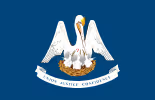
.svg.avif)



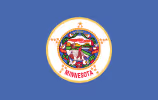
.avif)
.avif)
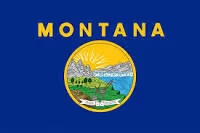
.avif)
.avif)


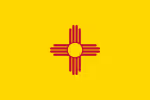
.avif)


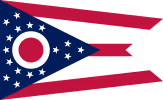
.svg.avif)

.avif)

.avif)
.avif)
.avif)
.avif)
.avif)
.avif)
.avif)
.avif)
.avif)
.avif)
.avif)
.svg%20(1).avif)
.svg)

